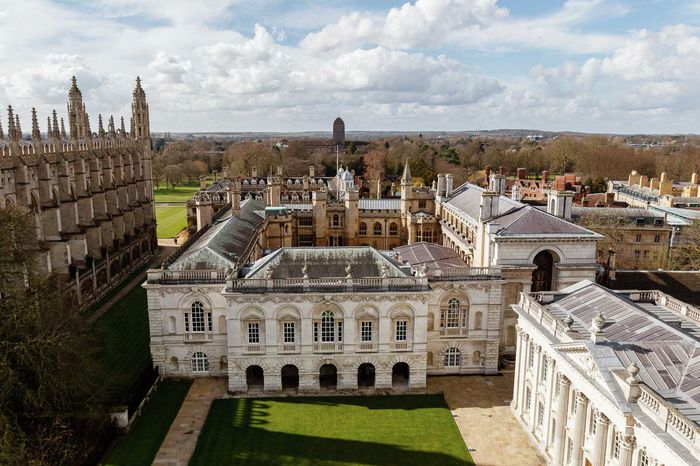Online interviews and no GCSEs: the Cambridge applicant in 2022
Prospective students share their perspective as Cambridge University holds online interviews for second year in a row

The Cambridge applicant in 2022 looks very different to their 2019 equivalent: they have not sat GCSEs, were unable to do work experience and have lost significant proportions of their A-level syllabus. For two years in a row, Cambridge University decided to hold its interviews online, dividing public opinion over the benefits of holding them in person.
Varsity asked three students about their experience of online interviews this year, and the impact of Zoom-based communication on the outcome of their application.
“Jack Smith” (who requested to be referred to using a false name) felt that despite being more confident discussing his subject online, he would have felt more connected with the University and invested in his application had he been able to visit. Although he did admit that “wearing a white school shirt with off-camera tracksuit bottoms in my living room was an advantage more than anything.”
Another interviewee who applied for Maths felt that “the conversation didn’t flow as easily as it might have” and that “people are easier to read in person and it would’ve been nice to be in the college itself.”
Hanane Zidani, aged 17, who applied to read Law, found the opposite, arguing that online interviews got rid of distractions. She said: “I would have overthought other aspects of the interview that are less important like how to dress and my body language and their body language…I was able to focus more on what I was saying and how I said it because that was the only thing that they could judge.”

University to accommodate all successful 2021-22 offer-holders
Jack believed that online interviews acted as a leveler for state school students, stating: “Online interviews may have helped reduce the private-state school gap. I imagine private school applicants are more familiar with the architecture of the colleges than state school applicants and the comfort and familiarity of being interviewed in your own home may, to some extent, redress this balance.”
In a statement released before the interviews took place, the University claimed that “no student will be disadvantaged” by the decision to hold interviews virtually, and that applicants seemed “more relaxed” online compared to in-person interviews.
State school applicants to the University received a record number of acceptances last year, with 72% of those receiving offers coming from the maintained sector, up from 70.6% in 2020. This compares to state school students receiving just over 68% of Oxford’s offers for the 2021 cycle, up from 62.3% in 2019.
Oxford also made the decision to hold their interviews online for the second year in a row and chose to use Microsoft Teams, whilst Cambridge used platforms Zoom and Whereby to communicate.
Emma Gladwin, who applied to read Law at Oxford, felt that online interviews posed a number of disadvantages- not only technical. “I believe it was more difficult to portray myself naturally online and, therefore, it was difficult to create a connection and an honest impression.”
Fears over the reliability of technology also added to the stressfulness of her experience; “The stress of setting up the interview, being allocated a room, and the constant fear of loss of connection, put me on edge throughout the entire experience.”
It is certainly true, therefore, that the Oxbridge applicant in 2022 not only has different credentials, but a different experience too. All of our respondents regretted not being able to visit the college itself, with Emma saying that ultimately: “To be able to stay there, eat food in the Hall, and, in a way, pretend to be a student for a few days would have been incredible. Whilst I am thankful for the interview experience, I cannot hide that I am jealous of the previous applicants.”
Statistics on this year’s applicants are expected to be released in the Autumn.
 News / Hundreds of Cambridge academics demand vote on fate of vet course20 February 2026
News / Hundreds of Cambridge academics demand vote on fate of vet course20 February 2026 News / University Council rescinds University Centre membership20 February 2026
News / University Council rescinds University Centre membership20 February 2026 News / Judge Business School advisor resigns over Epstein and Andrew links18 February 2026
News / Judge Business School advisor resigns over Epstein and Andrew links18 February 2026 News / Petition demands University reverse decision on vegan menu20 February 2026
News / Petition demands University reverse decision on vegan menu20 February 2026 News / Caius students fail to pass Pride flag proposal20 February 2026
News / Caius students fail to pass Pride flag proposal20 February 2026










